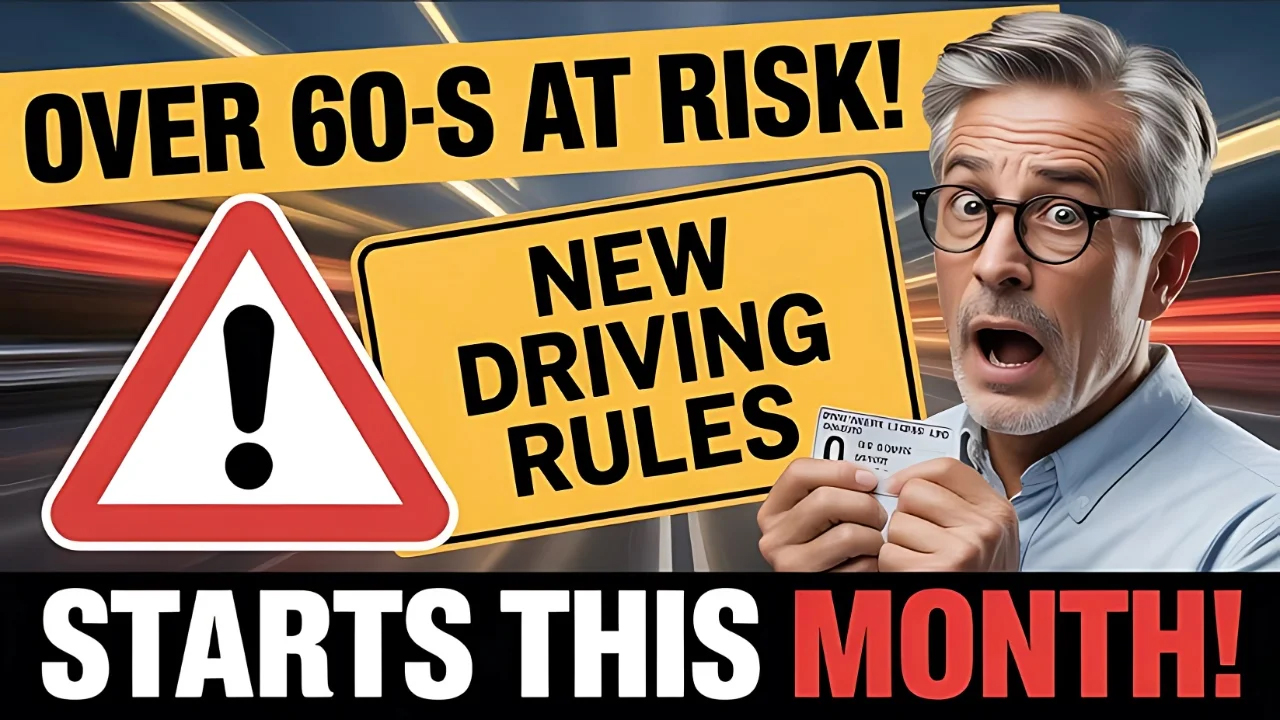If you’re over 62 and still driving on Australian roads, here’s something you can’t afford to ignore. Authorities have recently issued three new warnings aimed specifically at older drivers, and honestly, they’re worth paying attention to. While age doesn’t automatically mean you’re a bad driver (far from it, many seniors are some of the safest and most experienced motorists out there), the truth is that certain risks do tend to increase with time.
Let’s break it down in simple, everyday language, so you know exactly what’s changing, why it matters, and how it might affect your daily drives.
Why Are These Warnings Being Issued?
To be fair, the government isn’t trying to scare anyone or suddenly take away licences from older Australians. Instead, these warnings are about awareness and prevention. Statistics show that drivers over 60 are more prone to health-related driving issues, slower reaction times, and unfortunately, they tend to be more severely injured in crashes compared to younger drivers.
So, rather than waiting for accidents to happen, authorities are simply giving a heads-up — reminders to help you stay safe, confident, and legally compliant on the road.
The 3 New Warnings for Drivers Over 62
Here’s the heart of it: the three warnings that have been rolled out.
1. Health and Fitness-to-Drive Checks
This one’s pretty straightforward. From the age of 62 onwards, you may be asked to undergo medical or vision tests more frequently to keep your licence. It doesn’t mean you’ll lose your licence at the first sign of a health issue, but authorities want to make sure that eyesight, reflexes, and overall fitness are up to standard.
Think of it like a routine health check for your car — except this one’s for you.
2. Higher Scrutiny on Medication Use
Honestly, this one often goes unnoticed. Many Australians over 60 are on some type of regular medication — whether it’s for blood pressure, diabetes, or pain management. Some of these medications can cause drowsiness, dizziness, or slower reaction times.
Authorities are reminding drivers that mixing certain meds with driving could be just as risky as drinking and driving. If you’re unsure, check with your doctor or pharmacist.
3. Stricter Licence Renewal Conditions
Unlike younger drivers who can renew their licence for long stretches, drivers past 62 might face shorter renewal periods. In some states, you may need to renew every 1–2 years instead of every 5–10 years. This is less about punishing older drivers and more about ensuring that regular checks keep you safe behind the wheel.
Quick Comparison Table
Here’s a simple table to help you see the differences:
| Warning | What It Means | Impact on Drivers Over 62 |
|---|---|---|
| Health & Fitness-to-Drive Checks | More frequent medical and vision assessments | May need to provide medical certificates or pass eye tests |
| Medication Use Scrutiny | Stronger reminders about medicine-related side effects on driving ability | Must review meds with doctor/pharmacist before driving |
| Licence Renewal Rules | Shorter renewal periods, sometimes annual or biannual depending on the state | More frequent trips to Service NSW, VicRoads, or equivalent |
What Does This Mean for Everyday Drivers?
If you’re in your early 60s, you might feel like these rules don’t apply just yet — but honestly, it’s better to prepare now. The good news is that none of these warnings outright stop you from driving. Instead, they’re safeguards.
-
For daily commuters: Expect a little extra paperwork or the occasional doctor’s note.
-
For retirees using cars mainly for errands and trips: You’ll probably only notice the shorter licence renewal intervals.
-
For long-distance travellers: Health checks will give you more peace of mind before hitting the road.
The Upside: Why This Could Be a Good Thing
On the flip side, while extra checks might sound like a hassle, they could actually work in your favour. Imagine catching a vision problem early before it causes an accident. Or finding out that a medication could be swapped for one that’s safer behind the wheel.
These warnings are less about restriction and more about supporting older Australians to stay mobile, independent, and safe. After all, driving is not just about getting from A to B — it’s about freedom, dignity, and maintaining your lifestyle.
Final Thoughts
So, what’s the takeaway? If you’re an Australian driver aged 62 or above, the three new warnings — health checks, medication monitoring, and stricter licence renewals — are simply there to keep you safe. They may add a few extra steps, but in the bigger picture, they protect not only you but also your passengers and everyone else on the road.
Stay proactive. Keep an eye on your health, have honest chats with your doctor, and stay on top of renewal dates. With those small adjustments, you can keep enjoying the open road for years to come.




